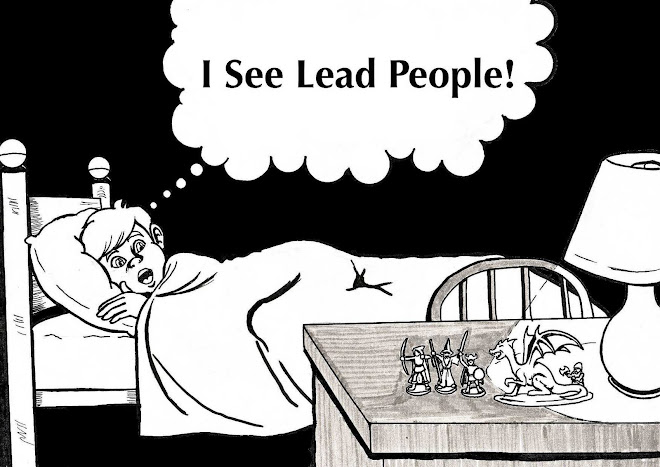 |
| The first piece made was a gigantic, monolithic natural gate created by toppled stone columns. |
After years and years of being a dedicated 15mm gamer, I find myself woefully lacking in 28mm terrain. With my recent headlong dive back into Pulp adventure gaming with Pulp Alley, I felt it was time to remedy this. I decided to start this with a project I have had in the back of my head for some time - large, craggy, vertical rock formations.
The goals of this project was to create some truly monolithic pieces that could be used alone, in groups or all together with other terrain to create a variety of settings. Using styro insulation boards and chunks of old styro I used a layering approach to create an ever complex network of customisable terrain.
While I was shooting for a lot of rocky detailing in the pieces, I also made sure to leave plenty of playable space, even on the vertical pieces. They are stackable and as you can see in the images below, this gives them a great deal of flexibility...
 |
| Natural step cut into the side of this piece are functional an thematic. |
.jpg) |
| A basic flat "plateau" can be used as is or with terrain added to it . |
.jpeg) |
| An example of adding two other stand-alone rock pieces to the plateau, creating a complex gaming space. |
 |
| Another example of adding another layer to the plateau. |
One last note, keep your mess. The picture below shows the leftover scraps that are created with all the cutting and gouging. I've removed the larger chunks, but ever this seemingly random mess can be used for rubble falls and such without having to resort to potentially costly purpose-made hobby products.


































































Those look great! What tool do you use and how do you get the weathered effect?
ReplyDeleteMatt,
ReplyDeleteI use a breat knife. I cut vertically first, trying not to be too exact. For deeper grooves I angle two cuts in at one another so they core out a deep crack.
After that, I go back and run the knife length wise, trying to use long, single strokes that create consistent layers. Don't worry if your layers don't line up, nature is funny that way.
When I cut the steps in, i use an exactly and carefull cut the steps to line up with the already established layers, going back to cut layering lines back in with the exacto.
Thanks Eli! I'm going to try myself.
DeleteGreat stuff Eli,
ReplyDeleteDon't throw out the scraps, they are excellent for small outcrops and such on smaller bases and for 15mm scale too. Also scenic bases.
GBS
Very nice so far liking the shape of them.
ReplyDeleteExtremely informative post, Eli. Thanks very much.
ReplyDeleteThese really look great. The shapes came out quite nicely.
ReplyDeleteThe rock outcrop and base look fantastic. I might be stealing this idea for some future terrain I'm thinking about.
ReplyDeleteKeep the off cuts and scrap - you will find a use for them.
Tony
I have the off-cuts in a bag, soon to move to a Rubbermaid tote. I have a big ol' tote that will become the new cutting box. this should help collect and contain the mess.
ReplyDelete-Eli